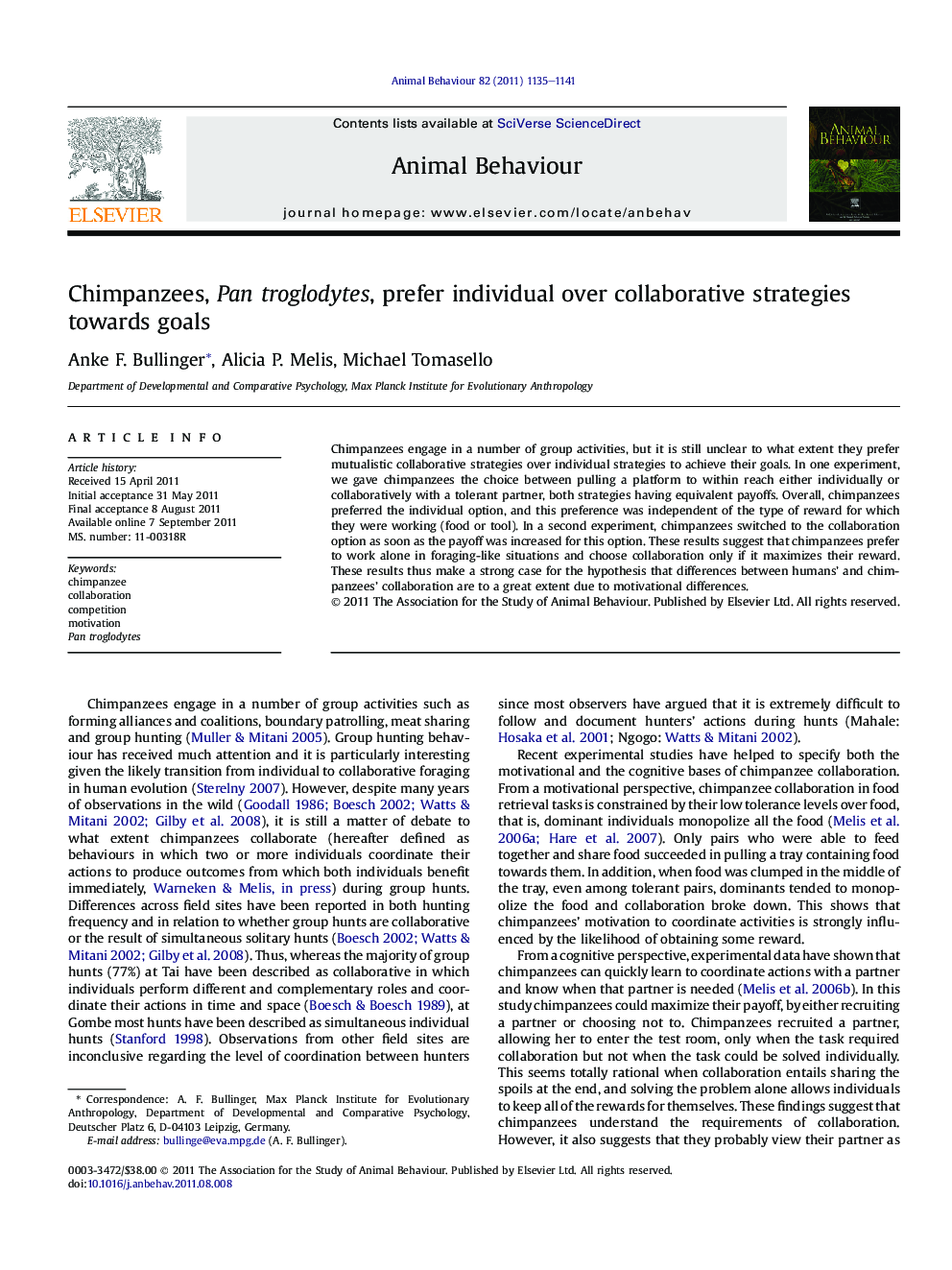| Article ID | Journal | Published Year | Pages | File Type |
|---|---|---|---|---|
| 2416935 | Animal Behaviour | 2011 | 7 Pages |
Chimpanzees engage in a number of group activities, but it is still unclear to what extent they prefer mutualistic collaborative strategies over individual strategies to achieve their goals. In one experiment, we gave chimpanzees the choice between pulling a platform to within reach either individually or collaboratively with a tolerant partner, both strategies having equivalent payoffs. Overall, chimpanzees preferred the individual option, and this preference was independent of the type of reward for which they were working (food or tool). In a second experiment, chimpanzees switched to the collaboration option as soon as the payoff was increased for this option. These results suggest that chimpanzees prefer to work alone in foraging-like situations and choose collaboration only if it maximizes their reward. These results thus make a strong case for the hypothesis that differences between humans’ and chimpanzees’ collaboration are to a great extent due to motivational differences.
► Chimpanzees prefer to work alone and collaborate only to maximize payoff. ► Chimpanzees use partners as social tools. ► Chimpanzees do not find the collaborative activity in itself rewarding. ► Differences between humans’ and chimpanzees’ collaboration are to a great extent due to motivational differences.
